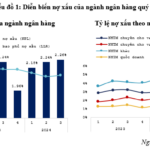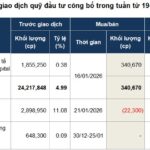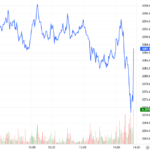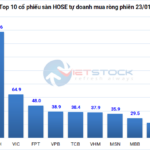Fitch Ratings has affirmed ACB’s Long-Term Issuer Default Rating (IDR) at ‘BB-‘ with a Positive Outlook. This reflects the bank’s improved creditworthiness, well-oriented retail strategy, controlled non-performing loan (NPL) ratio, and robust risk management framework, coupled with expected profitability growth and stable capital reserves.
Fitch maintains ACB’s VR at ‘bb-‘, GSR at ‘bb-‘, and assigns a Long-Term Local Currency IDR of ‘BB-‘ for the first time, with a Positive Outlook. The IDR is underpinned by ACB’s VR, demonstrating the bank’s autonomous credit risk management capabilities. The Positive Outlook indicates an expected improvement in asset quality over the next 12-18 months, benefiting from a favorable economic environment and the bank’s consistent underwriting standards, among other factors, that mitigate risks associated with rapid credit growth.
As one of Vietnam’s leading private banks, ACB excels in retail lending and deposit mobilization, with the highest ratios among its domestic privately-owned peers at 65% and 80%, respectively. This dominant position in the retail segment, coupled with a selective focus on corporate banking, the introduction of new products and services, and enhanced value propositions for Vietnamese enterprises, solidifies ACB’s standing in the market.

ACB’s Hanoi Head Office
ACB demonstrates strong NPL management, with a slight increase to 1.5% as of September 2024, which remains below the industry average and that of its rated peers. Fitch has revised the outlook for the bank’s asset quality to Positive from Negative. ACB’s loan-to-deposit ratio (LDR) increased to 99% in September 2024, in line with industry trends, while its regulatory LDR remained comfortably below the 84% limit set by the State Bank of Vietnam (SBV). Fitch recognizes ACB’s prudent risk management and expects liquidity ratios to remain commensurate with the rating and improve over the next year.
Although ACB’s Fitch Core Capitalization ratio decreased to 12.3% as of September 2024, it still maintains an adequate capital buffer. The bank is projected to sustain a higher Fitch Core Capital ratio than its rated peers, benefiting from improved internal capital generation capabilities.
Fitch attributes Vietnam’s GDP growth of 6.8% in the first nine months of 2024 and an expected average growth of 6.5% in the coming years as favorable factors for ACB’s business expansion and mitigation of asset quality risks. The rating agency forecasts ACB’s profitability to rebound in 2025, driven by a recovery in retail loan demand and improved market-sensitive income as the market stabilizes.

ACB’s modern transaction office model
Fitch assesses ACB’s ESG factors as neutral or having a limited impact, reflecting the bank’s strong commitment to managing environmental, social, and governance (ESG) issues sustainably. ACB prioritizes environmentally friendly lending policies, community support, and transparency in its business operations. The bank has introduced a Sustainable Finance Framework and increased its Green/Social lending package to VND 4,000 billion to facilitate the transition of Vietnamese enterprises towards sustainable development.
By integrating ESG initiatives into its long-term strategy, ACB strives to create lasting value for its customers, shareholders, and society. These efforts not only enhance ACB’s reputation but also contribute to the sustainable development of Vietnam’s economy.
The upgrade in outlook and affirmation of the ‘BB-‘ credit rating by Fitch Ratings underscore ACB’s solid position in Vietnam’s financial market, marked by its journey of continuous innovation, maintenance of service quality, and focus on sustainable financial solutions, fostering long-term relationships with its customers.
For more information on Fitch Ratings’ assessment, please refer to this link.
ACB consistently ranks in the Top 10 banks across all critical business and governance criteria. The bank boasts the third-highest ROE among its peers, is among the Top 5 banks with the highest ROA, and maintains one of the lowest NPL ratios.
What the Bad Debt Situation of Banks Reveals
Strong credit growth, largely driven by an increase in business lending, has kept non-performing loan ratios stable in Q3 compared to the previous quarter. However, a closer look at individual bank groups reveals a different story, with underlying risks still prevalent. In particular, there are notable concerns within the smaller commercial banking groups that warrant attention.
“Vietnam: Poised to Move Up the Global Supply Chain Ranks”
With its favorable policies and inherent potential, Vietnam has become an attractive destination for foreign investors (FDI). The country is expected to experience a positive growth trajectory in FDI inflows during the remaining months of 2024. Amidst intense global competition to participate in global supply chains, Vietnam holds certain advantages that position it competitively.

















